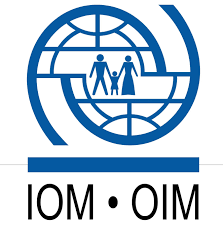By Byron Mutingwende
Victims of trafficking often fall prey to false promises of better opportunities; a discussion at the United States Embassy ‘s Public Affairs Section in Harare revealed Tuesday.
Speaking at a “Food for Thought” discussion forum organised by the US Embassy, the United Nations Office on Drugs and Crime (UNODC), the International Organisation on Migration (IOM), and the Msasa Project, the Deputy Chief of Mission at the US Embassy in Zimbabwe, Jennifer Savage warned against falling for promises of green pastures in foreign lands as the practice was a bait used by human traffickers.
Savage gave an analogy of a Mexican student who was promised of an educational opportunity in the US, coupled with life and medical insurance benefits. Upon arrival, the student’s passport was confiscated and she was led to a dairy farm where together with 14 other foreigners, they were given inadequate food and forced to do other menial jobs for very little or no pay at all.
In another story, a music promoter and manager promised a young Vietnamese singer heaven on earth in the US. All hell broke loose when the singer was introduced to prostitution and strip-teasing in nightclubs in nightclubs, where she was sexually abused and exploited.
“Human trafficking is a $150 billion industry. Of all the victims, 55% are women and girls while 26% are children. There is a need for a global solution to this problem. The Home Affairs Minister Ignatius Chombo and US Ambassador Thomas have agreed to collaborate to end human trafficking in in the two countries,” Savage said.
She called for an increase in awareness campaigns against human trafficking, prosecution of offenders and provision of support to the victims.
Daniel Sam, the Programme Manager of promoting migration governance in Zimbabwe said that human trafficking often happens in the context of migration. Victims are exposed to labour exploitation and human rights abuses.
“Victims of trafficking are exposed to sexual exploitation, forced labour or are conscripted into the army in conflict situations. The limited opportunities for advancement in the country of origin of the victims of trafficking, lack of jobs and the need to advance education are among some of the factors driving this menace,” Sam said.
IOM monitors such activities and provides some form of empowerment to the victims who are put into shelters to recover from trauma or reintegrated into the society to become self-sufficient.
Samantha Munodawafa, the Programme Officer (Criminal Justice) at the Regional Office UNODC Regional Office for Southern Africa said that 64% of victims of human trafficking in the region were children. She said that orphans and vulnerable children were in dire situations, as most of them would be exposed to exploitation.
“In Zimbabwe for example, 12-year-olds are looking after their siblings aged six years and below. They work long hours cooking, washing and playing with their children instead of going to school,” Munodawafa said.
She added that in South Africa, child marriage was prosecuted as human trafficking. The UN Official also condemned cultural practices like marrying off children to older men (Musengabere in Shona). She also said that some beliefs in countries like Malawi and Mozambique to the effect that some body parts of people with albinism would attract wealth was an unfortunate practice that was exacerbating human trafficking amongst that group of people.






